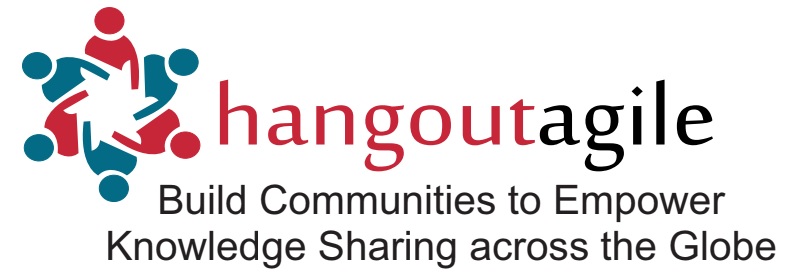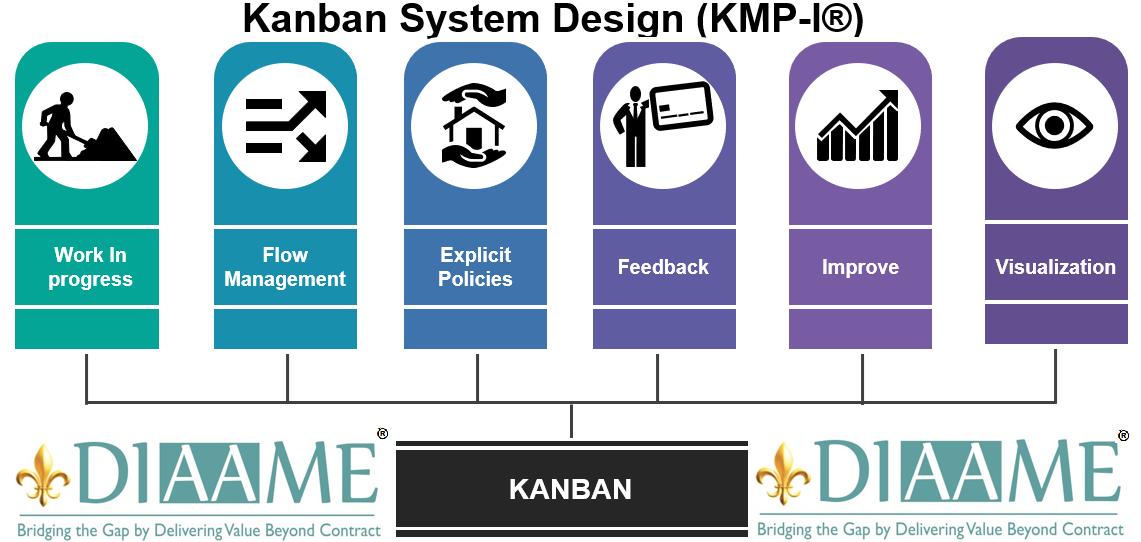A Propose of KMP I® OR Kanban System Design (KMP-I®): Practically Implement Successful Evolutionary Change
This course will teach you unerringly what the name says, We’re confident it’ll add more value to your career. Getting Started KMP I® OR Kanban System Design is a highly interactive two-day course accredited by the Lean-Kanban University (LKU) and start implementing Kanban at Project/Program Level. Participants will gain sufficient knowledge about Kanban Implementation at their Project/Program environment. Methods and related topics to get started with introducing Kanban in the existing process, and taking that first step to making it successful.
Today, Agile Project Management Professionals, Who can architect Agile Projects is what IT Sector is looking for. It is a professional discipline, with a specific set of skills and competencies. Leading organizations and governments around the world invest in professional credentialing for project/program/portfolio management. For individuals, the certification is an important step in career development and recognizes qualified and competent individuals.
Learning Kanban System Design will enable you to Design Project/Programs using Kanban and move forward to your next career ladder or stand out unique in Project / Program / Portfolio / Release Management at your organization/career. This certification is specifically for professionals who are involved in any product development/support/development projects that are dealing with complexities and uncertainties.
If you really enjoy the prestige that comes from being the best in your field, then you’ll appreciate the professional rewards derived from attaining the KMP-I®, the profession’s most globally recognized and respected credential.
“Stand out from the throng and exhibit your Agile (Lean/Kanban) project management skills with a globally recognized credential.”
1.What is this course?
Certified Lean Kanban Foundation – Practically Implement Successful Evolutionary Change is a highly interactive two-day course accredited by the Lean-Kanban University (LKU) and provides in-depth training in Kanban practices and the principles that underpin the Kanban method, including a fully immersive Kanban simulation. The Kanban method is an evolutionary approach to change and change management by starting with what you already do; respecting current roles; responsibilities and job titles; encouraging acts of leadership at all levels, and agreeing to pursue incremental, evolutionary change that evolves business processes using a Kaizen approach that reduces the risks associated with complex change programmes. Participants will gain sufficient knowledge about the Kanban Method and related topics to:
- Lead or guide a team in their adoption of Kanban – from initial visualization and the design of Kanban systems through to evolutionary change
- Answer questions and support the team in day-to-day operation
- Help teams to identify and resolve hindrances to flow
- Take measurements and create meaningful metrics that helps the team
- Evolve process and practice according to team needs, in a meaningful way
- Connect with the Kanban community for the sharing of practical experiences and the development of new ideas and techniques
2.What will you learn?
Based on the trainer’s practical experience, participants will learn how to:
- Identify internal and external sources of dissatisfaction
- Analyse demand vs capability
- Model the knowledge discovery process
- Design kanban systems and their visualisations
- Identify/prioritise improvements
- Choose cadences for activities
- Identify classes of service
- Create a roll-out plan, negotiating strategy with stakeholders
3.What will you receive?
Two days of high quality instruction from Dileep Appupillai who has over 17 years of experience in Project Management/Program Management/Release Management/Product development, support, enahncement/Training/Consulting & e-Governance for many Fortune500 Companies & Govt. Departments in India as well as Abroad. For courses on our public schedule, refreshments before and during the course, including lunch
- Course materials
- Membership of the Lean-Kanban University (LKU)
- Lean-Kanban University (LKU) certificate of course completion
- Fulfillment of the Kanban Management Professional 1 (KMP1) requirements
- A free electronic copy of David Anderson’s “Kanban: Successful Evolutionary Change for Your Technology Business” book
- 16 Scrum Education Units (SEU’s) can be claimed for this course and used as part of your Scrum Alliance Certified Scrum Professional application. See the CSP application process on The Scrum Alliance website for more details.
- 16 Professional Development Units (PDU’s) can be claimed for this course and used as part of your PMI® Crecential Review.
4. What topics are covered?
- Kanban Introduction
What is Kanban?
Kanban with a big ‘K’ and little ‘k
Kanban to Manage Change (Kaizen & Kaikaku)
Principles of the Kanban Method
Kanban Core Practices
When is Kanban Typically Used?
- Identify Work Items:
Demand Analysis
Handling Large Work Items
Kanban Cards
Sizing Work Items
- Value Streams
What is a Value Stream
Mapping the Knowledge Discovery Process through Value Stream Mapping
- Kanban Boards
The Relationship between a Kanban Board and the Value Stream
Setting up and using a Kanban Board
Different Options for Kanban Boards
Queues and Buffers
- Limit Work In Progress (WIP)
Queuing Theory – Little’s Law
Calculating Lead Time
Calculating Throughput
Calculating WIP
Calculating Release Time
Why Limit WIP
Techniques to Limit WIP
Where to Apply WIP Limits
- Make Management Policies Explicit
Definition of ‘Done’
Classes of Service
Cost of Delay
Service Level Agreements
- Measuring and Managing Flow
Cumulative Flow Diagrams in Relation to Kanban
How to Produce a Cumulative Flow Diagram
How to Measure Lead Time
How to Measure WIP
How to Measure Flow
Optimizing Flow
How to use the Cumulative Flow Diagram to Identify Problems
Five Focusing Steps to Remove Bottlenecks
Interpreting a Control Chart
Interpreting a lead time distribution chart
- Sources of Variability
Sources of dissatisfaction
The impact of variability
Techniques and strategies for removing variability
- Empirical Feedback
Improvement Kata
Cadence and Rhythm
Daily Stand-ups
Retrospectives
Operations Review
- Apply your learning
Team-Based Realistic Simulation of a Kanban System in Practice
- Kanban in your Organisation
The Context for Change
The Steps required to Build a Kanban system
Apply a Kanban System to your Organisation
Prepare a Roll-Out Plan for your Organisation
5.Who is this course suitable for?
This course is useful for anyone who wants to be successful using Kanban within their organisation, or anyone who works with teams utilizing Kanban. As such, it will benefit anyone who is involved in using Kanban or considering using Kanban. It will be helpful both to those new to Kanban and those who have explored Kanban but now want to consolidate their knowledge in a practical setting. In terms of roles, the course is suitable for Product, Project and Programme Managers, Development Team Members (including but not limited to Architects, Designers, Developers, Testers), Business Analysts and Scrum Product Owners and Scrum Masters who want to enhance their Lean / Agile skill set. Attending the course as a full team offers a real opportunity for the entire team to experience and learn Kanban together and creates an excellent foundation for them to move forward.
6.Are there any prerequisites for this course?
There are no prerequisites for the course, however students are expected to complete the required pre-course reading.
7.How should you prepare for?
Approximately one week before the training a pre-course email will be issued that contains some short research tasks.
8.What about exams & certifications?
This course has been accredited by David J Anderson (creator of the Kanban method) and Lean-Kanban University (LKU). Students taking a LKU-accredited course will be eligible to become members of the Lean-Kanban University and will have met the requirements of the Kanban Management Professional 1 (KMP1) designation. To read about the benefits and learn more, visit the LKU Website: http://leankanbanuniversity.com/.
9.Who are the main target audience?
Team Members, Teams Leads, Project Leads, Project Managers, Scrum Masters, Product Owners, Technical Leads, Test Leads, HR Managers, Operations Managers , Senior Managers, QA Managers, QA Leads, Business Analysts, Process Consultants / Associates, Anyone interested in Project Management, Anyone who wants to develop their visualization skills, Anyone who wanted to increase their competency in Project Management
For further questions, contact:
Cell #: +91 914 802 6666; Email ID: Nadia@diaame.com; services@diaame.com; info@diaame.com; Visit us: www.diaame.com & www.hangoutagile.com


